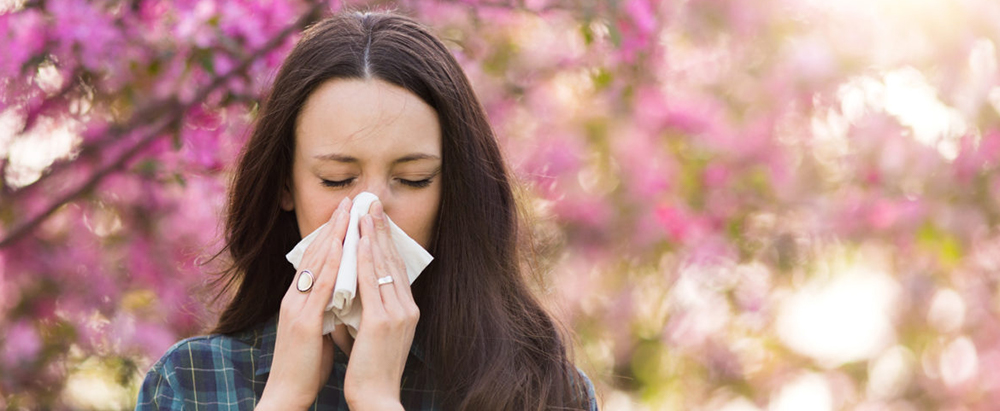
Spring allergies and contact lenses

Spring is a beautiful season, but for allergy sufferers, it can also bring discomfort - especially for those who wear contact lenses. With increased pollen, dust, and other airborne allergens in the air, itchy, watery, and irritated eyes are common. These symptoms can make contact lens wear challenging. Fortunately, there are several ways to minimise discomfort and continue wearing your lenses comfortably during allergy season.
How do pollen and allergens affect contact lens wearers?
When pollen and other allergens get trapped under or on the surface of your contact lenses, they can lead to prolonged irritation and exacerbate allergy symptoms, such as:
Red, itchy eyes
Excessive tearing
Gritty or burning sensation
Blurry vision
Since contact lenses sit directly on the eye, they can act like magnets for allergens, intensifying symptoms. However, by following a few simple tips, you can keep your eyes clear and comfortable throughout allergy season.
Tips for comfortable contact lens wear during allergy season
Switch to daily disposable contact lenses
Daily disposable lenses are ideal for allergy sufferers. Since you use a fresh pair each day, there's no buildup of allergens on the lenses. This helps prevent irritation and reduces the chances of allergic reactions. Daily contacts are a great way to reduce the risk of allergy flare-ups.
Keep your contact lenses and hands clean
Proper lens hygiene is essential. If you wear reusable contact lenses, be diligent about cleaning them regularly. Use a preservative-free, hydrogen peroxide-based contact lens solution to effectively remove allergens. Be sure to wash your hands thoroughly before handling your lenses to avoid transferring pollen to your eyes.
Use Allergy-Friendly Eye Drops
Lubricating and antihistamine eye drops can help reduce irritation and flush out allergens. However, not all eye drops are safe for use with contact lenses. Look for preservative-free eye drops labelled as “contact lens-friendly” to ensure compatibility. Always consult with your optometrist for recommendations on the best eye drops for your specific needs.
Wear glasses on high pollen days
If pollen counts are high, consider wearing glasses instead of contact lenses. Glasses can act as a barrier, reducing the amount of pollen and other allergens that reach your eyes. Taking a break from contacts during allergy season can also give your eyes much-needed relief.
Limit outdoor exposure during peak allergy times
Try to minimise outdoor activities during peak pollen times, typically in the morning and on windy days. If you must go outside, wearing sunglasses or protective eyewear can shield your eyes from airborne allergens and reduce irritation.
Use an air purifier to improve indoor air quality
To help reduce allergy symptoms indoors, use an air purifier with a HEPA filter to trap pollen, dust, and other allergens. A humidifier can also help prevent dry air from exacerbating eye irritation and keep your eyes hydrated.
Replace your contact lens case regularly
Bacteria and allergens can accumulate in your contact lens case, increasing the risk of irritation. To maintain optimal lens hygiene, replace your lens case every one to three months and always use fresh contact lens solution when storing your lenses.
Visit Lynne Fernandes Optometrists for expert advice on allergy season comfort
If you're struggling with allergy-related eye discomfort or need guidance on the best contact lenses for allergy season, book an appointment with Lynne Fernandes Optometrists today! Our team is dedicated to helping you find the best solutions for clear, comfortable vision throughout the spring allergy season.